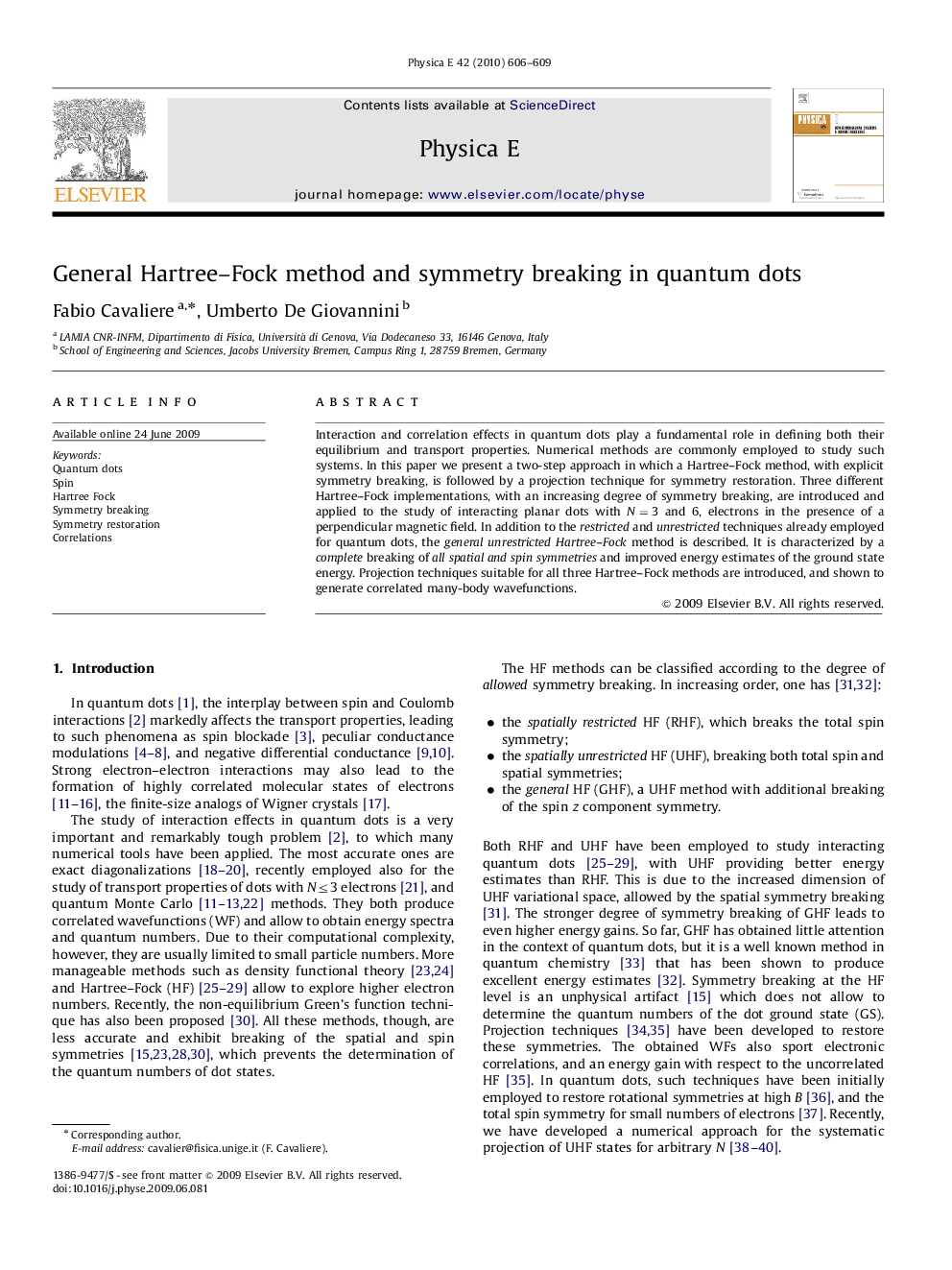| Article ID | Journal | Published Year | Pages | File Type |
|---|---|---|---|---|
| 1546480 | Physica E: Low-dimensional Systems and Nanostructures | 2010 | 4 Pages |
Abstract
Interaction and correlation effects in quantum dots play a fundamental role in defining both their equilibrium and transport properties. Numerical methods are commonly employed to study such systems. In this paper we present a two-step approach in which a Hartree-Fock method, with explicit symmetry breaking, is followed by a projection technique for symmetry restoration. Three different Hartree-Fock implementations, with an increasing degree of symmetry breaking, are introduced and applied to the study of interacting planar dots with N=3 and 6, electrons in the presence of a perpendicular magnetic field. In addition to the restricted and unrestricted techniques already employed for quantum dots, the general unrestricted Hartree-Fock method is described. It is characterized by a complete breaking of all spatial and spin symmetries and improved energy estimates of the ground state energy. Projection techniques suitable for all three Hartree-Fock methods are introduced, and shown to generate correlated many-body wavefunctions.
Related Topics
Physical Sciences and Engineering
Materials Science
Electronic, Optical and Magnetic Materials
Authors
Fabio Cavaliere, Umberto De Giovannini,
